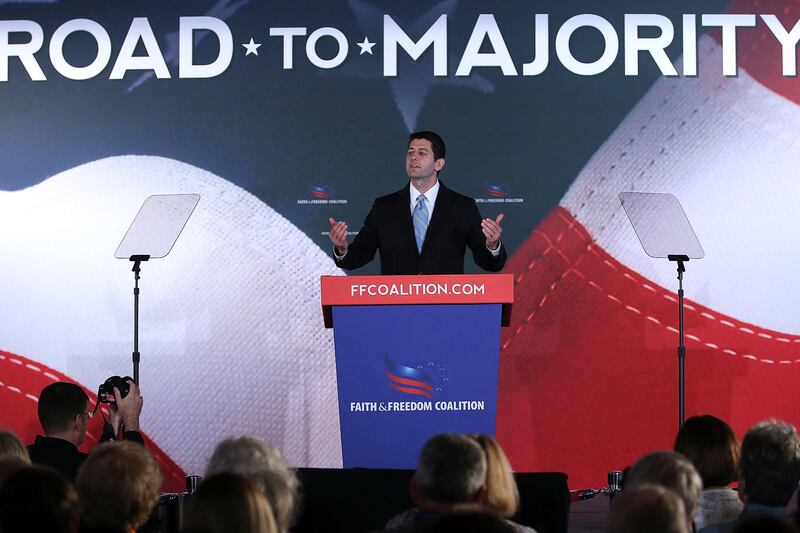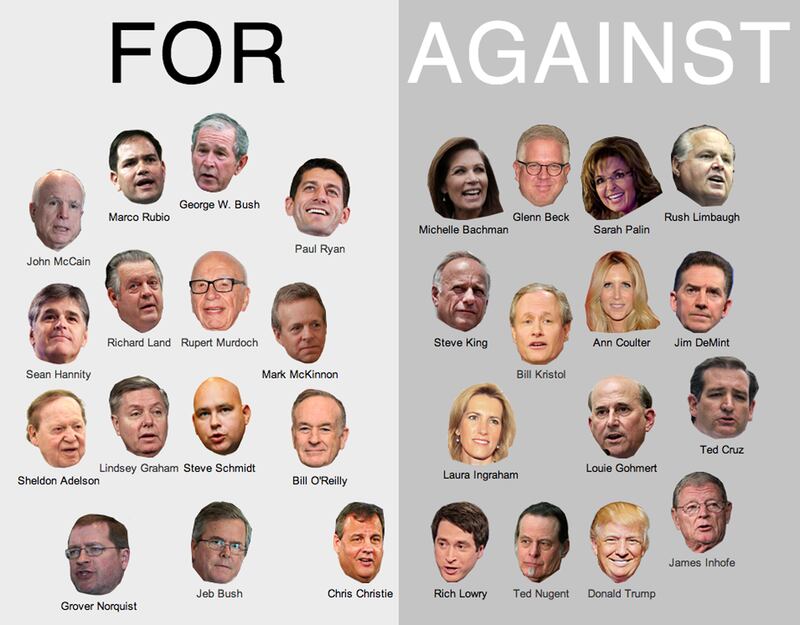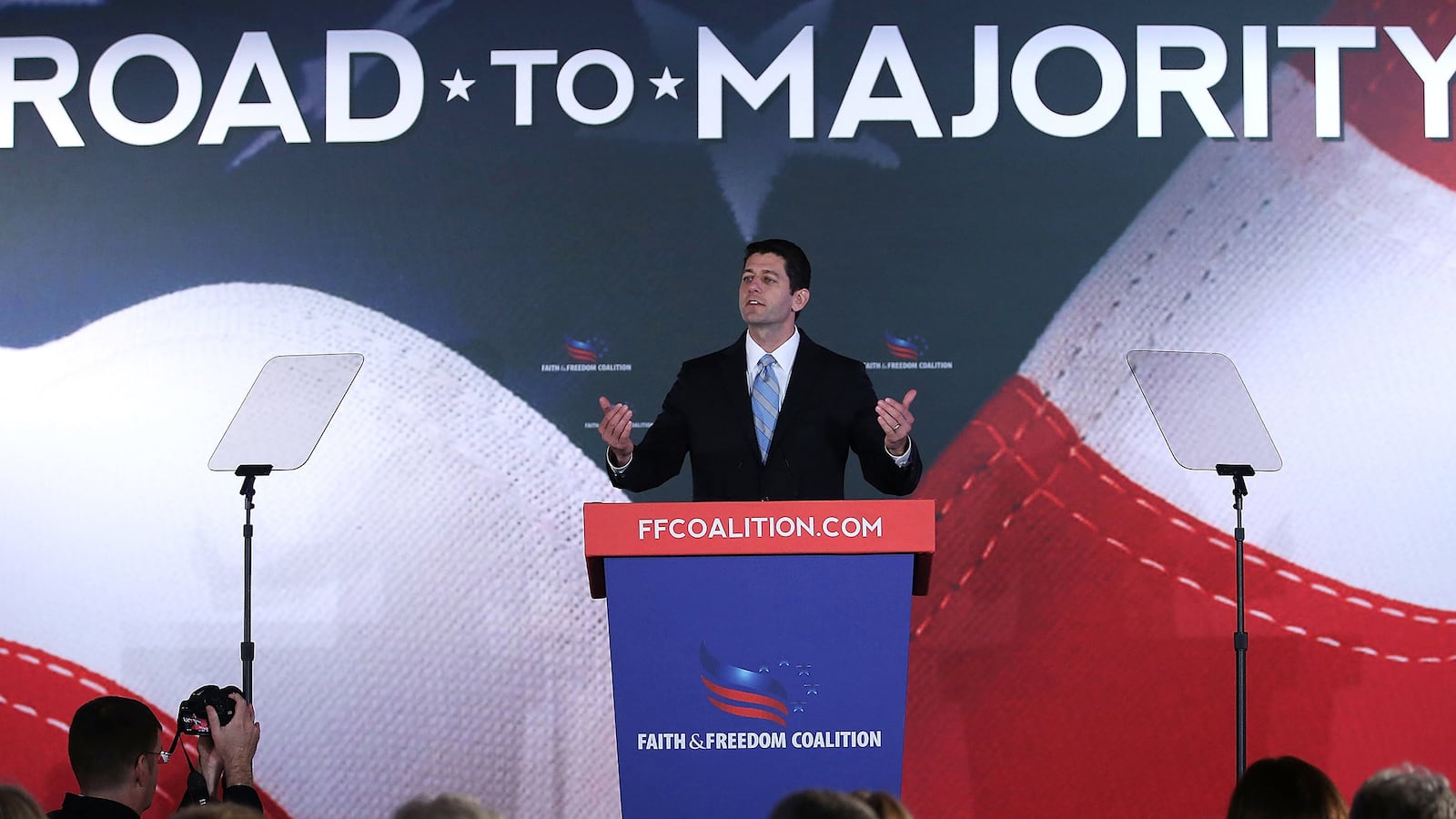The conventional wisdom in Washington has it that immigration reform is dead and the Republican Party isn’t far behind.

Press reports focus on the (very real) civil war within the GOP, the latest rants from the die-hards and the crazies, and the various reasons, led chiefly by congressional redistricting and Tea Party pressure, that immigration reform will go down in flames. But considerably less attention is being paid to a handful of key conservatives, members of both the old and new guards in the House, whose recent moves on immigration are giving high-level staffers, lobbyists, and advocates reason to believe that the chances for reform are still alive in this Congress.
Driven by a combination of personal politics, religious beliefs, professional ambitions, and old-fashioned self-interest, these five Republicans are the dominoes at the front of the line for the House GOP, according to immigration watchers. As go these five, so goes the caucus. Call them “the Deciders.”
A major test for the Deciders will be the month of August, when members traditionally head home to their districts and get an earful from constituents about whatever is pending before Congress. To avoid a repeat of the 2009 pitchfork-and-torches sessions that nearly torpedoed health-care reform, House members in the “Gang of Seven” will introduce their comprehensive immigration bill in September, well after House Republicans have offered smaller measures and the heat of the recess has come and gone.
If all goes smoothly in August, immigration advocates believe comprehensive reform still has a fighting chance in the House, but the decisions of these five men will hold the keys to the future of the reform effort.
Paul Ryan
Ryan is best known outside the Beltway as Mitt Romney’s ill-fated, gee-whiz veep choice, but Ryan has quietly stepped into the void of Republican leadership in the immigration debate to make the case for the issue to the rank-and-file members. Known to harbor higher aspirations than his current perch at the top of the House Budget Committee, Ryan has acted as an emissary between the House “Gang” drafting a comprehensive reform bill and House conservatives, who seem to have reservations about nearly all aspects of it.
People close to the process variously describe Ryan as the “adult in the room” and the “Labrador whisperer” (for his ability to speak the language of House upstarts like Rep. Raul Labrador), and uniformly point to the Wisconsin numbers-cruncher as the biggest surprise in the reform effort. Ryan spoke at a recent GOP caucus meeting to argue that the American economy cannot improve without the work force that immigration reform would provide, and he continues to press the case as an economic issue. Whether he chooses to run for the White House for 2016 or John Boehner’s job sometime before that, Ryan’s behind-the-scenes role is singling him out among his colleagues as a leader with potential to do more.

Raul Labrador
The Puerto Rican-born son of a single mother has played the role of the un-Rubio on immigration reform so far, joining and then bolting the House Gang of Seven over how new immigrants would pay for health care. A top Democratic staffer calls Labrador a “frenemy” to the reform effort because of his fits and starts on the issue, but advocates are holding out hope that the former immigration lawyer will back the effort in the end. In many ways Labrador embodies the tensions of the issue for Republicans, as both a Latino and a Tea Party favorite with a 100 percent rating from the Club for Growth. Labrador’s vote undoubtedly will move a large bloc of conservatives with him, and the high stakes are not lost on the Idaho sophomore. He said on Meet the Press earlier this month, “If we don’t do this right, it could be the death of the Republican Party.”
Trey Gowdy
Like Labrador, Gowdy is a member of the rowdy 110th GOP freshman class that has been giving John Boehner heartburn for the better part of three years. But this former federal prosecutor also has emerged as a central player in immigration reform as the chairman of the House Subcommittee on Immigration. Along with Rep. Bob Goodlatte, Gowdy is helming the GOP’s “piecemeal” approach to reform by passing bite-size nuggets of legislation through the Judiciary Committee that a majority of Republicans could get behind on the House floor, including the “SAFE” act to make it a felony for an immigrant to be in the U.S. unlawfully.
But Gowdy is also a Southern Baptist whose church, led by Dr. Richard Land, has vocally advocated for comprehensive immigration reform on behalf of evangelicals this year. Staffers familiar with the South Carolina congressman’s role in House negotiations say that while Gowdy has been “all over the place” on individual elements of the issue, he also has taken a pragmatic, cooperative approach to working on the legislation and “is leaving his options open. He’s not closing any doors.”
Spencer Bachus
Bachus is best known nationally as a money guy—namely as the former chairman of the House Financial Services Committee who once made headlines for claiming to know of 17 socialists in Congress.
But Bachus has been getting a different kind of attention this year from immigration advocates who say he surprised them with a measure to stall GOP efforts to make it a felony for immigrants to be in the U.S. unlawfully. The Alabama congressman’s amendment failed in the Judiciary Committee, but the legislation made him a conservative bellwether on immigration reform.
Like Gowdy, Bachus is a Southern Baptist and recently told The Wall Street Journal that he supports a path to citizenship for undocumented immigrants “because I don’t believe we should have a second class of citizens.” Bachus also has proved his willingness to buck his own leadership, including on the Violence Against Women Act and a package to pay for Hurricane Sandy relief, two of just three bills Boehner has allowed to move forward without a “majority of the majority” this year.
Kevin McCarthy
As the Republican whip in the House, McCarthy is in charge of counting (and running up) votes for pending GOP bills on the House floor. But so far, his own vote on immigration reform is anyone’s guess. With a district that sits squarely in the agriculture-heavy Central Valley of California that also has a 35.5 percent Latino population, advocates say McCarthy has been conspicuous in his silence on an issue that will have a huge impact on his own community.
McCarthy gave no hints of his position when activists protested in front of his Bakersfield office, and he released a milquetoast statement that said in part, “We are a nation of immigrants, but also a nation of laws.” Reform advocates note that like Bachus, McCarthy bolted the majority when he had the chance on Sandy relief and VAWA, and he’d have good reason to do so again on immigration if given the chance.
As the official proctor for House Republicans, any move McCarthy makes toward comprehensive reform is a move toward making the effort a reality.






